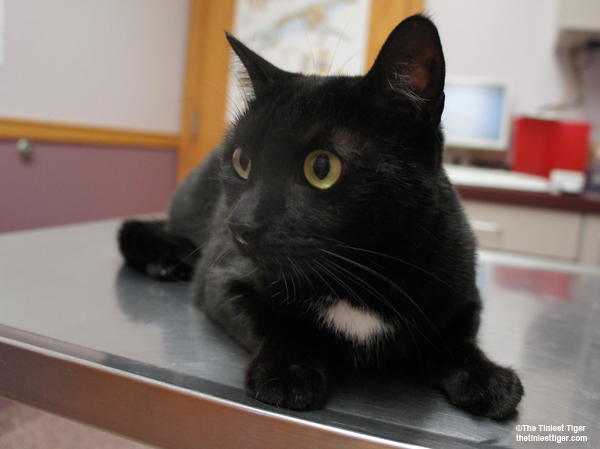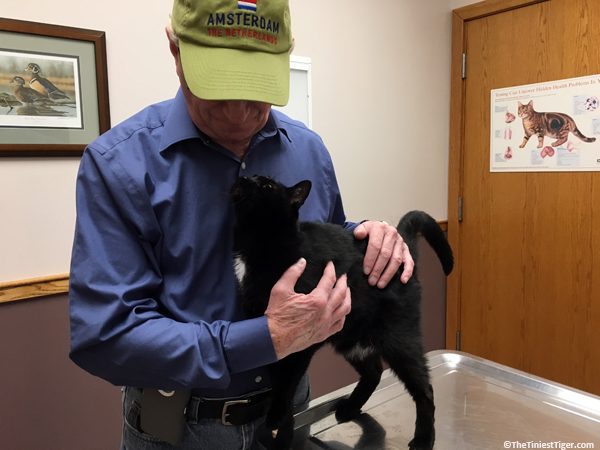
A Breakthrough in Veterinary Medicine
Hypertrophic cardiomyopathy (HCM) is a serious cat heart condition primarily affecting cats, characterized by the thickening of the heart muscle which impairs its ability to pump blood efficiently. It is estimated that approximately 15% of the cat population suffers from this disease, making it the most frequently observed heart disorder in felines. Traditional treatment approaches for feline heart disease have primarily focused on managing symptoms rather than addressing the underlying causes of the condition.
Advancements Treating Hypertrophic Cardiomyopathy
Recent advancements in veterinary medicine have propelled the development of treatments that target the disease at its core, offering new hope for affected animals. Notably, a novel drug therapy led by Dr. Joshua Stern at the NC State College of Veterinary Medicine in collaboration with the Irish company TriviumVet, has shown promising results in handling HCM. The drug, a specially formulated version of rapamycin, has been documented to alleviate or even negate the hallmark symptoms of HCM beside its role in intercepting the progression of the disease itself.
The mechanism through which rapamycin exerts its effect involves its action on the mTOR pathway—crucial for the regulation of metabolism and cellular physiology. By intervening in this pathway, rapamycin can counteract the thickening of the heart muscle before the onset of overt symptoms, marking a significant shift in the management of the condition.
Large Scale Clinical Trial for Cat Heart Condition
A large-scale clinical trial is underway, involving the enrollment of around 300 cats across over 20 locations in the United States. With expanded conditional approval from the U.S. Food and Drug Administration, this drug is inching closer to becoming a staple in veterinary practice. The promise of this drug stands as a beacon of change for a disease that could otherwise lead to severe outcomes like arterial thromboembolism, heart failure, or sudden mortality.

Clinical Trial Highlights:
- Objective: Slow or reverse heart muscle thickening
- Number of Participants: 300 client-owned cats
- Study Locations: Over 20 sites in the U.S.
- Expected FDA Approval: March
- Research Incentives: Backed financially by TriviumVet
Such developments also highlight the importance of collaborative efforts in cardiovascular research, bringing together veterinary scientists and pharmaceutical innovators. Dr. Stern and his team’s research promises a strategic shift in how vet cardiologists approach HCM, moving from purely symptom management to tackling the disease head-on.
Potential Benefits:
- Control over mTOR pathway
- Improvement in cardiac function
- Reduction in mortality associated with the disease
The implications of this breakthrough extend beyond domestic cats, offering insights that could benefit other species, including humans, who suffer from related cardiac pathologies. As more is understood about genetic mutations leading to HCM, tailored treatment avenues could emerge, backed by pioneering trials such as TriviumVet’s. Researchers hope for approvals by mid-year, ideally coinciding with the American College of Veterinary Internal Medicine conference.
The potential of this new therapy not only marks an evolution in treatment strategies but also presents a model for future innovations in addressing inherited cardiovascular conditions. As this research advances, the veterinary community eagerly anticipates the widespread availability of a therapy that could redefine feline health, setting a precedent for future cardiovascular solutions.
Cat Heart Condition: Common Questions and Answers
Possible Side Effects of Heart Medication in Cats
Medications used for feline heart conditions might cause side effects, which can include changes in appetite, gastrointestinal issues, or changes in energy levels. Monitoring the cat and consulting a veterinarian if any unusual behavior or symptoms occur is important.
Typical Dose of Rapamycin for Cats with HCM
For cats diagnosed with hypertrophic cardiomyopathy (HCM), rapamycin is often administered at a specified dose tailored by the veterinarian. This is typically based on the cat’s weight and overall health status.
Sirolimus and Its Impact on Feline Heart Conditions
Sirolimus, an immunosuppressant, has demonstrated potential in treating heart conditions in cats. It may help manage symptoms and improve heart function, though ongoing veterinary supervision is crucial for optimal outcomes.
Developments in HCM Treatment for Cats
Recent advances in treating hypertrophic cardiomyopathy include the development of new medications like MYK-461. This drug holds promise in managing HCM more effectively by improving heart muscle function.
Lifespan Expectations for Cats with HCM
Once HCM is diagnosed and managed with appropriate medication, cats may experience an extension of their lifespan. The prognosis heavily depends on the severity of the condition and the cat’s overall health.
Delayed-Release Rapamycin Administration Considerations
When administering delayed-release rapamycin to feline patients, factors like timing and consistency are essential. Ensuring a consistent treatment schedule helps maintain the medication’s effectiveness and minimizes risks.